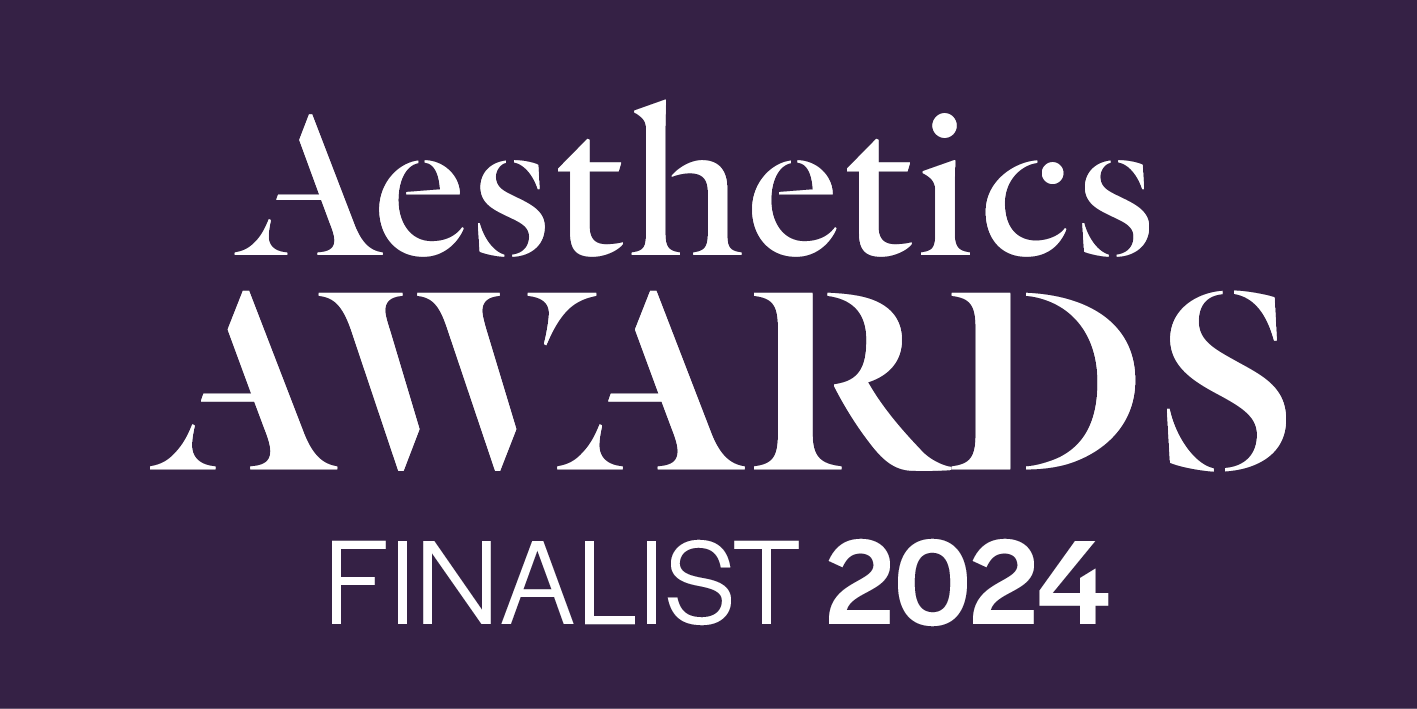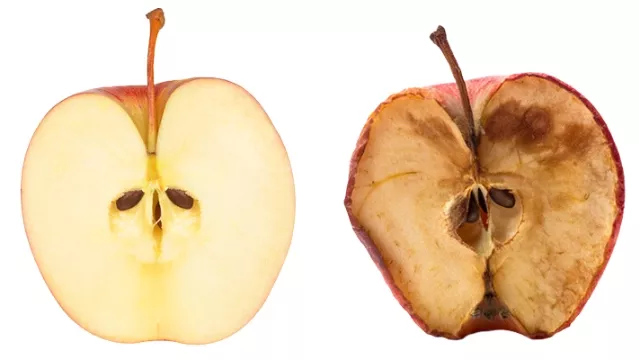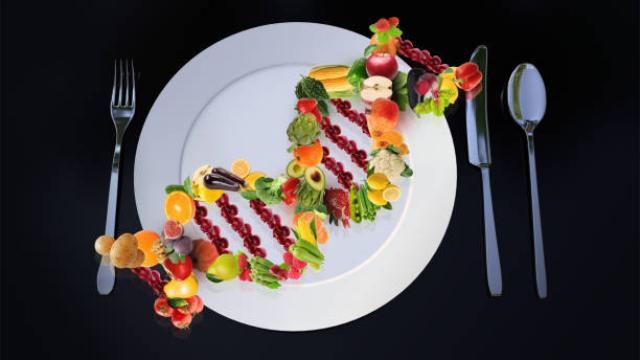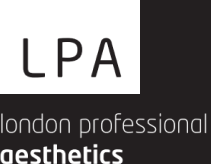Oxidative stress is a term that refers to the imbalance that occurs when free radicals are present in such high numbers as to overwhelm the body’s own antioxidant defence. This stress results in permanent and cumulative damage. This type of damage is implicated in several diseases that are familiar to us such as Alzheimer’s and heart disease to name just a few. Oxidative stress is also believed to be a major cause of the dermatological changes that lead to skin ageing.
As a visual example to simplify this phenomenon consider the way in which an apple turns brown after you cut it open – this process is oxidation. Another example you may be less aware of – consider the spots that can occur with Acne – you can get whiteheads (or closed comedones) Whiteheads are follicles that have become filled with sebum and old skin cells but the opening at the surface of the skin is microscopic. Blackheads (or open comedones) are exactly the same, the only difference being that the opening at the skin surface is wider, allowing oxidation to take place and resulting in the black colour you can see.
The causes of these chemical changes that result in oxidation are happening all the time and include our lifestyle choices, the environment in which we live and stress. So what can we do about it? Diet is so important – try to reduce your intake of processed foods, try to include a variety of fruit and vegetables. Drinks such as green tea are high in antioxidants. Reduce alcohol intake – alcohol induces oxidative stress via the metabolism of ethanol. This metabolic process produces free radicals. Stop or reduce smoking – cigarette smoke contains high level of oxidant molecules leading to oxidative stress on inhalation. Exercise has been found to increase production of free radicals; however it also stimulates antioxidant production. Consistent moderate exercise therefore is advantageous in the fight against oxidative stress. For those training at more intense levels, careful attention to dietary and supplementary intake is essential. UV rays from the sun which penetrate our skin our known to result in free radical skin damage.
LPA is an award-winning nurse-led clinic. Our philosophy is to help you age in a way that you feel confident and comfortable in yourself. We’re on a mission to win your trust from the off, by making your visit relaxed and easy and ultimately sending you on your way with a natural revitalised and more attractive version of you, so that you’re ready to conquer your world!
We are based in EC1 in the bustle of the city. We are registered with Save Face, the UK aesthetics regulatory body.
Skincare
So we now have good evidence to support the role of antioxidants in our diet, but what of topical antioxidants? Does Skincare now have a role in preventing the oxidative stress resulting in ageing? There is a growing body of clinical data to support the use of topical antioxidants in place of or in addition to our traditional moisturisers and cleansers. Vitamins C and E are known for their antioxidant properties and are found in many skincare ranges. Vitamin C however is unstable and you need to look for products containing at least 10% vitamin.
Lesser known as an antioxidant are grape seeds, lilac plant, green and black tea. There are also antioxidant properties found in metals such as iron. There are many so called cosmeceutical brands on the market now and growing evidence to suggest that using topical antioxidant skin care is the most effective way to address the multi-faceted biological process of skin ageing. So if you are serious about skincare, it’s time to reconsider the old cleanse, tone and moisturise regime and start introducing some high potency skincare regimes.















